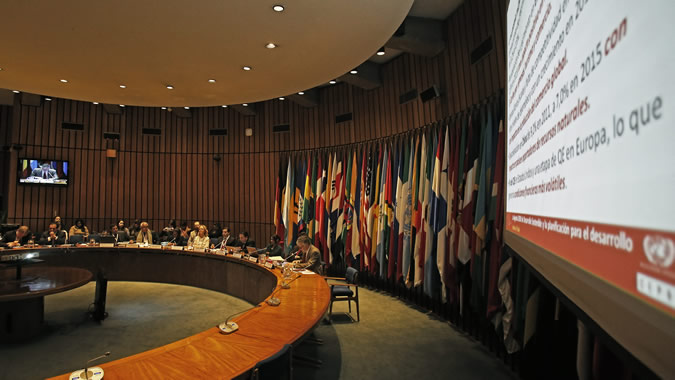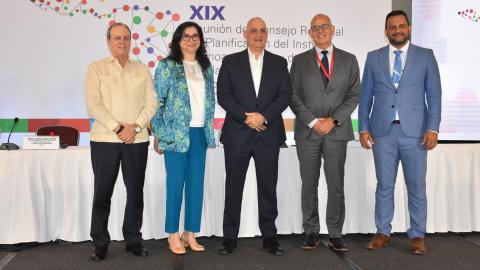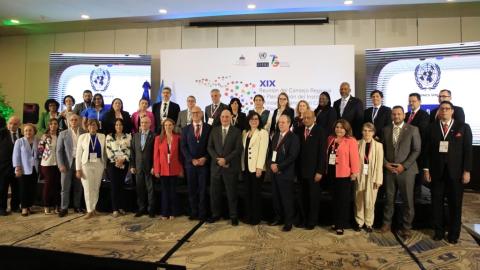Press Release
The role of planning in the implementation and monitoring of the new 2030 sustainable development agenda was discussed by authorities and experts who participated last Wednesday, 12 August, in the seminar Latin America and the Caribbean: towards a sustainable future, which preceded the twenty-fifth meeting of the Presiding Officers of the Regional Council for Planning of the Latin America and Caribbean Institute for Economic and Social Planning (ILPES).
The seminar was opened by Antonio Prado, Deputy Executive Secretary of the Economic Commission for Latin America and the Caribbean (ECLAC), who gave an overview of the economic, social, and environmental situation of the region and shared the United Nations vision about the 2030 agenda and its impact on planning. Jorge Máttar, Director of ILPES, also took part in this session.
The implementation of the 17 Sustainable Development Goals (SDG), which are expected to be formally approved by the countries in September, requires planning policies at all levels and sectors, explained Antonio Prado, who specially highlighted the importance of planning in the actual context of economic slowdown in the region.
When a long-term agenda is adopted, it is inevitable to go through the different phases of the economic cycle (from expansion to recession), raised the senior official, so the planning with a future vision becomes crucial to achieve the defined objectives, he said.
The current situation represents “a great opportunity for planning to stand as an active instrument to serve the Latin American and Caribbean 2030 sustainable agenda”, agreed Jorge Máttar, who recalled that “each country, region and continent must assimilate, adapt, adopt and implement the global agenda according to the relevant priorities, objectives and indicators in each case.”
The first panel of the seminar included Simón Gavira, Director of the National Planning Department of Colombia, Hugo Gómez, Undersecretary of Planning and Territorial Management of the Planning and Programming Department of the Presidency of Guatemala, and Marisela Rivera, General Coordinator of the International Insertion Strategy of the National Planning and Development Secretariat of Ecuador.
Marta Aguilar, National Director of Territorial Strategic Planning of the Ministry of Federal Planning, Public Investment and Services of Argentina, Peisha Bryan-Lee, from the Planning Institute of Jamaica, Juan Tomás Montenegro, Deputy Minister of Planning of the Dominican Republic, and Emiliano Fernández, Deputy Minister of Inclusive Economic Growth of the Technical Secretariat of Planning of Paraguay also intervened.
The national representatives shared their countries’ experiences in the development plans definition, and discussed how these are linked to the 2030 agenda, currently under approval process within the United Nations.
During his presentation, Antonio Prado raised the need to mobilize national, regional, multilateral and international resources for the 2030 agenda, highlighting the existence of a regional architecture for its implementation and monitoring. He mentioned, in this regard, some of the regional and sub-regional integration spaces in operation, such as the subsidiary bodies of ECLAC, including the CRP, the Caribbean Development and Cooperation Committee and the conferences on Statistics, Population, Women, Social Development and Science, Innovation and ICT conferences, to mention some of them.
The Presiding Officers of the CRP for the 2014-2017 period, which held its meeting after the seminar ended, is integrated by Ecuador and Guatemala in the Presidency, and Argentina, Bolivia, Brazil, Colombia, Chile, Jamaica, Paraguay, Dominican Republic and Trinidad and Tobago in the Vice Presidencies. The details related to the XV Regional Council for Planning, to be held in November in Ecuador, were also reviewed during this meeting.



